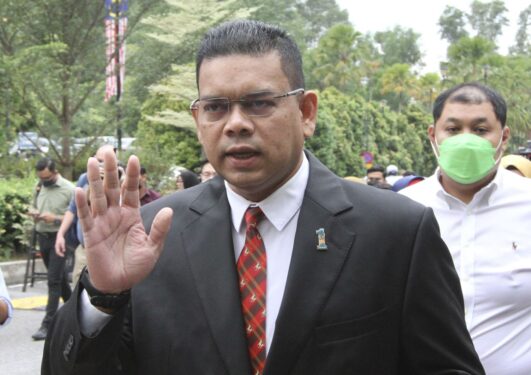JAKARTA: Indonesia has bolstered its procedures to prevent a financial crisis during the coronavirus outbreak, the finance minister said on Wednesday, flagging a worst-case scenario of an economic contraction this year and the rupiah hitting a record low.
Sri Mulyani Indrawati said the protocol to help failing banks has been upgraded to allow for early responses by all financial authorities as part of an emergency regulation that President Joko Widodo announced on Tuesday.
Widodo signed the regulation to give room for more spending and to widen the budget deficit, waiving a 3%-of-GDP (gross domestic product) deficit cap for three years.
He also unveiled 405 tril rupiah (RM107.4 bil) of additional spending to cushion the impact of the virus outbreak on Southeast Asia’s biggest economy, which would expand the 2020 fiscal deficit to 5.07% of GDP.
The economy is expected to grow 2.3% in 2020, but the government has prepared for a worst-case scenario of a contraction of 0.4%, Indrawati told an online news conference.
Her scenarios also include the rupiah falling further to average 17,500 to 20,000 to the dollar, the weakest on record.
Bank Indonesia (BI) Governor Perry Warjiyo later stressed these scenarios were not an outlook and were to be prevented.
He said the current exchange rate level was “adequate.” The rupiah weakened after the announcement to 16,430 at 0600 GMT, from 16,380 before.
Indrawati described the new procedures as “extraordinary measures” and pledged authorities would adhere to careful governance. Despite, for example, the new protocol giving room for BI to purchase sovereign bonds directly from the government, she said such a move would be a last resort.
Other provisions include allowing the government to lend to the Indonesia Deposit Insurance Corporation – a government agency that insures bank deposits and saves failing banks, easing rules on BI’s short-term liquidity lending and allowing the Financial Services Authority to do early restructuring of banks or even merge lenders if needed.
Governor Warjiyo stressed Indonesia would not impose capital controls.
The new plan also includes a cut in the corporate tax rate to 22% effective immediately until 2021 and a further trim to 20% starting in 2022.
Anushka Shah, sovereign analyst at Moody’s Investor Services, said the 5% fiscal deficit would be below the median of countries with Baa-investment grade and said the fact that the deficit cap would be reinstated in 2023 “would be an important consideration for fiscal discipline and would anchor overall investor confidence.”
Indonesia’s known cases of coronavirus have gone from none in early March to 1,528, with 136 deaths as of Tuesday. – April 1, 2020, Reuters










